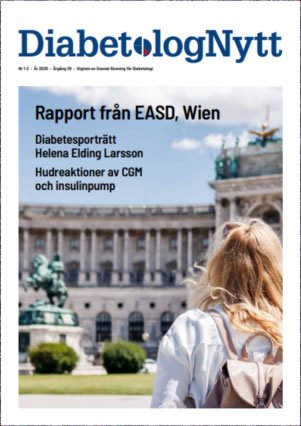Studies: Bariatric Surgery Best for Obese Diabetics
MedPage Today
Published: March 26, 2012
Reviewed by Zalman S. Agus, MD; Emeritus Professor, Perelman School of Medicine at the University of Pennsylvania and Dorothy Caputo, MA, RN, BC-ADM, CDE, Nurse Planner
2 comment(s)
Action Points
These two studies provide evidence that in obese patients with type 2 diabetes, surgery can be more effective that either standard or intensive medical treatment alone.
Point out that in both studies, bariatric surgery (gastric bypass, biliopancreatic diversion or sleeve gastrectomy) induced remission and was associated with a significant improvement in metabolic control over and above medical therapy, whether conventional or intensive.
Hemoglobin A1c levels normalized to under 6% by 1 year for 42% of patients who got gastric bypass surgery and 37% who got sleeve gastrectomy compared with 12% on intensive medical therapy alone (P=0.002 and P=0.008), Philip R. Schauer, MD, of the Cleveland Clinic, and colleagues reported in the STAMPEDE trial.
After 2 years in a second trial, diabetes went into remission with fasting glucose under 100 mg/dL and A1c under 6.5% off medication in 75% of gastric bypass patients and 95% of biliopancreatic diversion patients compared with none on conventional medical therapy.
Metabolic control also improved more in the surgery groups of both trials, appearing online in the New England Journal of Medicine.
”Although type 2 diabetes has been the domain of physicians, surgeons may now be able to claim greater success in achieving improved metabolic control,” an accompanying editorial suggested, calling the results likely practice changing.
Longer term and larger studies are needed to prove a durable benefit and whether the results would be as good in routine practice, noted editorialists Paul Zimmet, MD, PhD, of the Baker IDI Heart and Diabetes Institute, Melbourne, Australia, and K. George M.M. Alberti, DPhil, of King’s College Hospital in London.
”Meanwhile, the success of various types of bariatric surgery suggests that they should not be seen as a last resort,” they wrote. ”Such procedures might well be considered earlier in the treatment of obese patients with type 2 diabetes.”
American Experience
The STAMPEDE (Surgical Treatment and Medications Potentially Eradicate Diabetes Efficiently) trial was presented at the American College of Cardiology meeting in Chicago in conjunction with NEJM publication.
It included 150 obese patients with a body mass index of 27 to 43 kg/m2 (mean 36, 34% under 35 kg/m2) and uncontrolled diabetes with a hemoglobin A1c over 7.0% (mean 9.2%) randomized to Roux-en-Y surgery or sleeve gastrectomy or medical therapy alone.
All patients got intensive medical therapy according to American Diabetes Association guidelines with lifestyle counseling, weight management (recommended to include Weight Watchers), and newer diabetes drugs, such as the incretin analogues.
Glycosylated hemoglobin levels fell rapidly in the first 3 months after surgery. By 1 year, they reached a mean 6.4% after gastric bypass and 6.6% after sleeve gastrectomy compared with 7.5% with medical therapy alone (Pation 6 months after gastric bypass. Two medical-therapy group patients had persistent diarrhea that resolved with substitution of another drug in place of metformin.
Limitations included the small sample size and lack of power for safety and clinical endpoints.
Bariatric surgery isn’t without hazards and remission may not be a cure, but it is gaining recognition in management of diabetes, the editorialists noted.
International Diabetes Federation now calls it appropriate for obese patients with type 2 diabetes not getting to glucose control targets with available medical therapy, especially with concomitant hypertension or other major coexisting illnesses.
”The final question, which is as yet untested, is whether bariatric surgery is suitable for all obese patients with type 2 diabetes, even those with a lower body-mass index,” they wrote.
Primary source: New England Journal of Medicine
Source reference:
Schauer PR, et al ”Bariatric surgery versus intensive medical therapy in obese patients with diabetes” N Engl J Med 2012; DOI: 10.1056/NEJMoa1200225.
Additional source: New England Journal of Medicine
Source reference:
Mingrone G, et al ”Bariatric surgery versus conventional medical therapy for type 2 diabetes” N Engl J Med 2012; DOI: 10.1056/NEJMoa1200111.
Additional source: New England Journal of Medicine
Source reference:
Zimmet P, Alberti KGMM ”Surgery or medical therapy for obese patients with type 2 diabetes?” N Engl J Med 2012; DOI: 10.1056/NEJMe1202443.
Nyhetsinfo
www red DiabetologNytt

